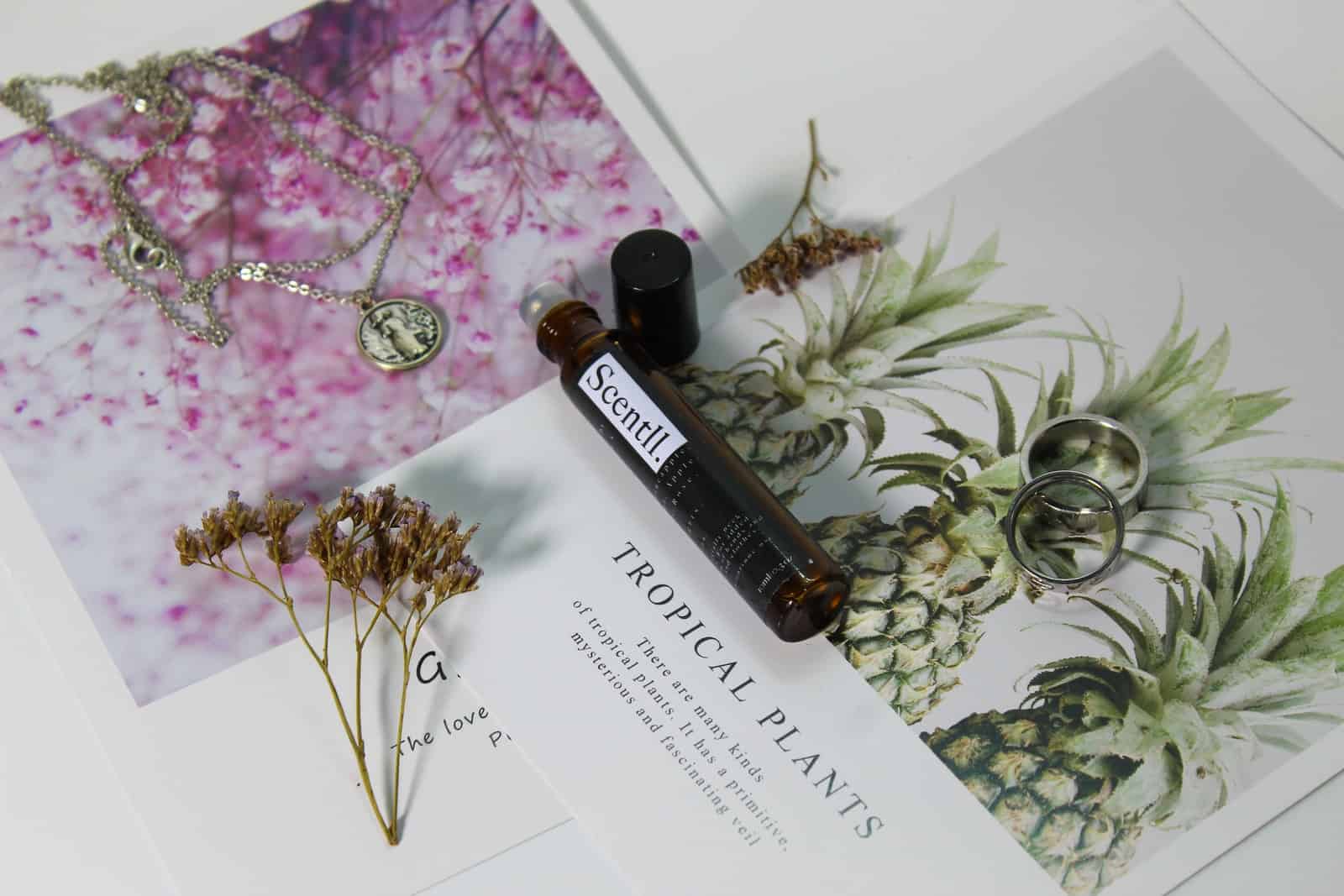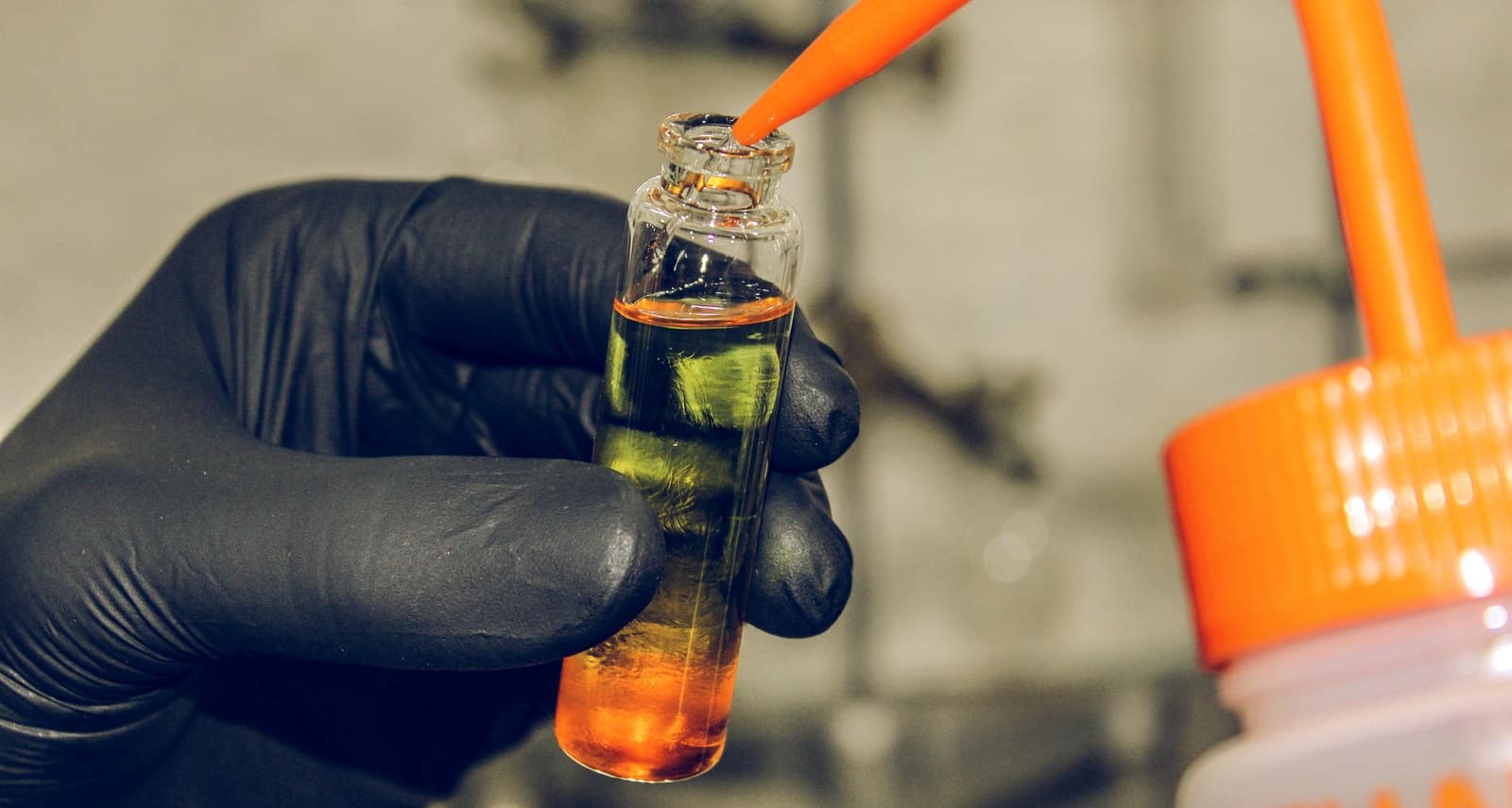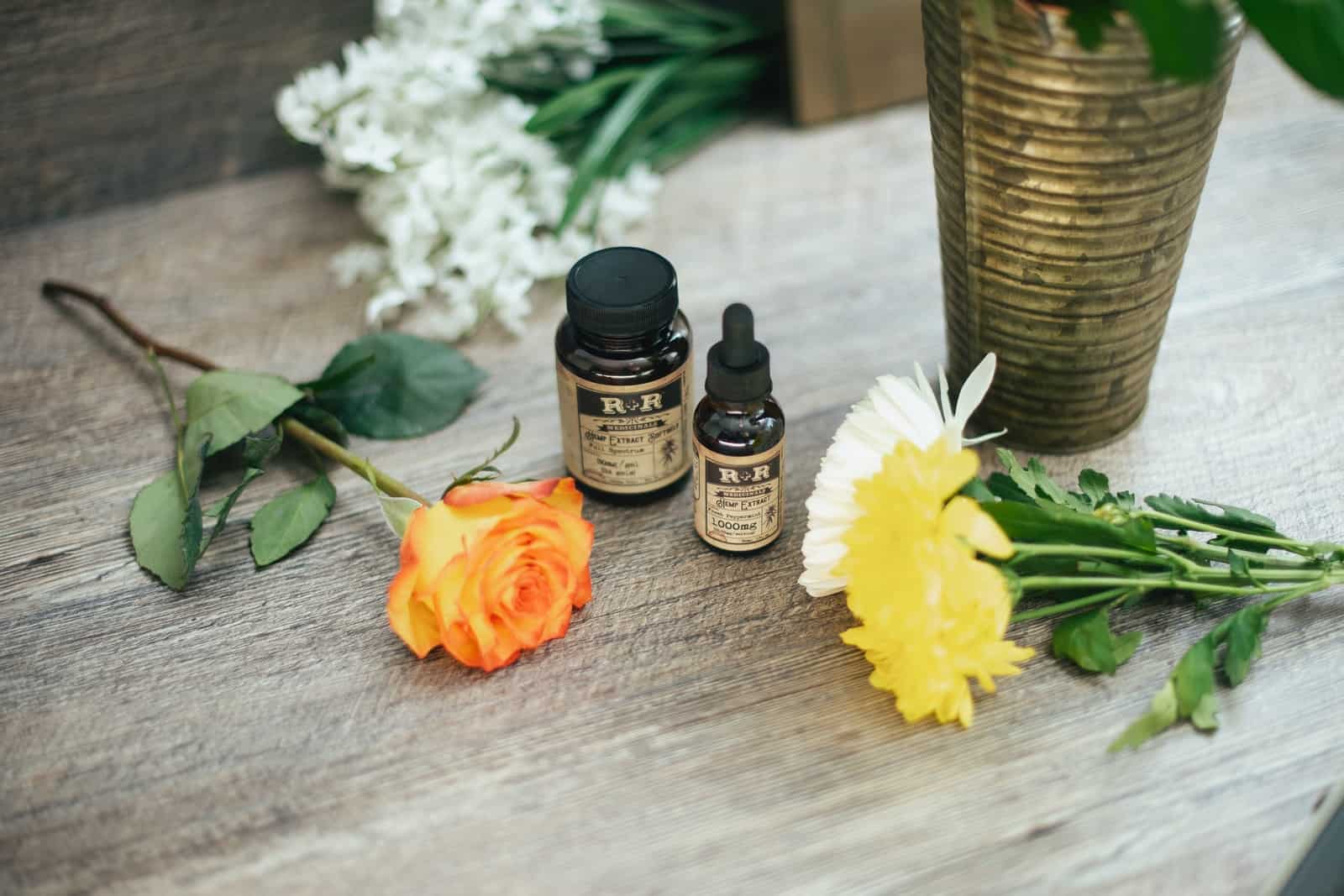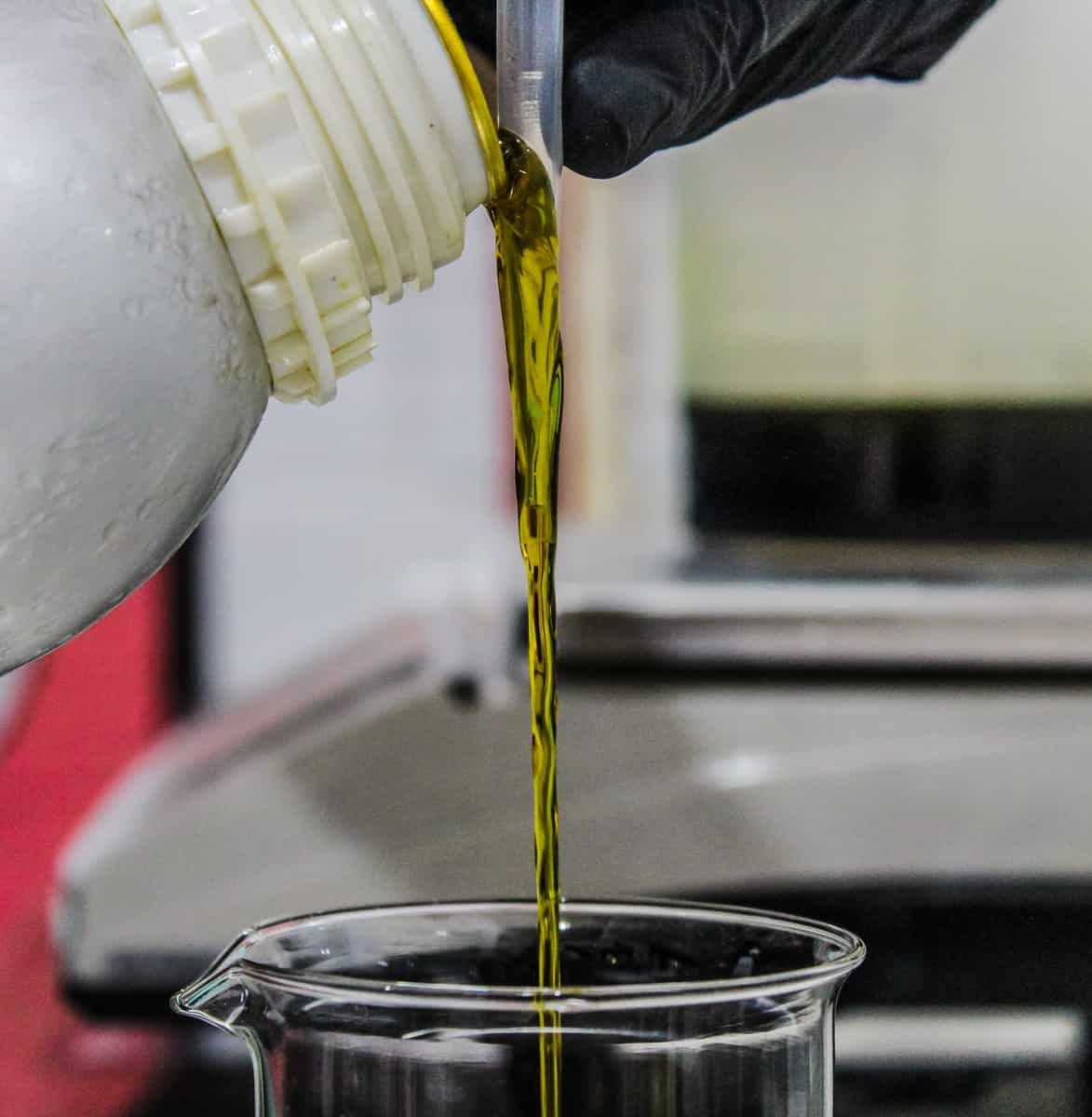There’s a lot of hype around natural fragrance oils. Are they really all that natural?
What does “natural” even mean when it comes to fragrance? In this blog post, we’re going to take a closer look at the truth behind natural fragrance oils.
Spoiler alert: not all of them are actually natural! We’ll explore what goes into making these scents and whether or not you can trust the label.
What is “Natural” Fragrance Oil?
Table of Contents

The term “natural” is used a lot when it comes to fragrance oils. But what does it actually mean?
In the world of fragrance, natural means that the scent is made from natural aromatic components that are found in nature. They are usually a combination of essential oils and other ingredients like carrier oils, botanical extracts, resins, waxes, and other naturally-derived ingredients.
However, just because an ingredient is derived from nature doesn’t mean it’s necessarily good for you.
For example, many essential oils are highly concentrated and can cause skin irritation if not used properly. So even though they’re natural, they might not be right for everyone.
What is a Synthetic Fragrance Oil

Synthetic fragrance oil is a manufactured scent that replicates the smell of a natural plant oil. These synthetic aromatic compounds are made from chemicals and do not contain any natural ingredients.
Synthetic fragrance oils are used in many products, including perfumes, air fresheners, candles, and cosmetics. They are also often used in industrial and commercial settings, such as in cleaning products and air fresheners.
Because of the issues of chemicals being released into the air when used in candles, many people are moving away from synthetic aromas and moving strictly to natural candles made with all-natural components. Vegan candles are going a long way to promote healthy candles.
The main reason that synthetic fragrance oils are used instead of natural ones is because they are cheaper to produce. Synthetic oils can also be more consistent in their scent than natural oils, which can vary depending on the batch or crop.
Despite being cheaper and more consistent, synthetic fragrance oils are not without their downside. Many people find that these manufactured scents can be harsh and overpowering. They can also cause skin irritation or trigger allergies.
How Are Natural Fragrances Produced?
Now that we’ve covered the basics of natural and synthetic fragrance oils, let’s take a closer look at how natural fragrances are made.
Some of the ingredients that may be used in natural fragrance oils include essential oils, absolutes, and CO2 extracts. Essential oils are derived from plants. Absolutes are made from the extracted essential oils. CO2 extracts are made from the plant material itself.
Absolutes
The precursor to creating an absolute is to make a “concrete”.
This is done by combining the plant with a natural wax and a solvent. Once sufficiently combined the solvent is removed by gentle heating and evaporation to be reused.
The waxy remnants which now hold the relatively light plant fragrance, as well as heavier plant substances, is the “concrete”.
The Absolute is made by washing the concrete with ethanol which removes the lighter plant fragrance. Again this is heated to remove the ethanol and leaves behind the plant fragrance and roughly 5% of the ethanol.
CO2 Extracts
The CO2 gas involved in this method is placed under extreme pressure at 100+ atmospheres and heated to over 80 degrees celsius. In this state, the gas becomes semi-dense and forms a mist.
This absorbs plant fragrances from the original plant material that has been placed into the pressure chamber. When the chamber is returned to normal atmospheric pressure the CO2 returns to its gaseous state leaving behind the pure fragrance.
Essentials Oils
These are usually produced with the steam method. Steam is passed over the plant material and then carries with it the plant fragrance into a cooling chamber. Once cooled only water and the plant oil is left.
Some delicate plants, commonly fresh flowers, such as the rose, cannot withstand such an aggressive procedure and the CO2 method is preferred for these.

Essential oils are concentrated forms of plant extracts, so they typically have a very strong scent. They’re usually diluted with a carrier oil before being used in fragrance formulas.
Carrier oils are non-comedogenic (meaning they won’t clog pores), and they help to keep the skin from becoming irritated by the essential oil.
Natural fragrance formulas can also contain other ingredients like botanical extracts, resins, and waxes. These ingredients can add different scents and properties to the final product.
Are All Natural Fragrance Oils Safe?
No matter what kind of fragrance oil you use, always do a patch test before applying it to your skin to avoid any chance of an allergic reaction.
This will help you see if you have any allergies or sensitivities to the ingredients.
Even natural fragrance oils can cause irritation for some people, so it’s always better to be safe than sorry.
When it comes to safety, pay attention to the ingredients list on your fragrance oil bottle. If you see anything that you’re not familiar with, do a quick Google search to find out more.
Some common allergens that can be found in fragrance oils include linalool, limonene, and citral. If you know you’re allergic to any of these ingredients, steer clear of fragrances that contain them.
However, even these ingredients have positive properties as you will read next.
Everything is made of chemicals
This is a common argument against using fragrance oils, but it’s not entirely accurate.
Yes, everything is made of chemicals. But that doesn’t mean that all chemicals are bad for you.
In fact, many of the ingredients in natural fragrance oils have actually been shown to have healing properties and benefits for your health.
For example, linalool has been shown to help reduce anxiety and stress levels.
Citral has antimicrobial properties and can help fight off infections.
And limonene has anti-inflammatory effects that can help soothe skin irritation.
Synthetic Fragrances: How Do They Differ?

Now that we’ve explored natural fragrance oils, let’s take a look at synthetic fragrances.
Fragrance oils can also be made with synthetic ingredients. These ingredients may include chemicals, such as benzene derivatives and aldehydes.
These are scents that are created in a lab using man-made chemicals.
Synthetic fragrances are often cheaper to produce than natural ones, which is why they’re so commonly used in products like soap, candles, and air fresheners.
However, just because they’re cheaper doesn’t mean they should be your go-to choice. In fact, some synthetic fragrances can actually be quite harmful to your health.
One of the biggest concerns with synthetic fragrances is that they often contain phthalates.
Phthalates are a type of chemical that can disrupt hormones and have been linked to reproductive problems and other health issues.
They’re commonly found in fragrance oils, but they can also be found in other products like nail polish and hair spray. If you’re concerned about phthalates, look for products that are labeled “phthalate-free.”
Another issue with synthetic fragrances is that they often don’t list all of their ingredients on the label.
This is because fragrance formulas are considered trade secrets, so companies don’t have to disclose what’s in them. This makes it very difficult to know what you’re actually putting on your skin when you use a product with synthetic fragrance.
Do you really want to use something on your skin that could potentially be harmful?
If you’re looking for a safer option, stick with natural fragrance oils.
They may be more expensive, but they’re worth it for the peace of mind knowing that you’re not exposing yourself to harmful chemicals.
Fragrance Oils vs Essential Oils
Now that we’ve covered how natural fragrances are made, let’s talk about the difference between fragrance oils and essential oils. Both of these types of oils are used to create scents, but they’re not the same thing.
Essential oils, on the other hand, are concentrated forms of plant extracts. They have a very strong scent and can be used for things like aromatherapy and massage. However, they can also cause skin irritation if they’re not diluted properly.
Fragrance oils typically have a stronger scent than essential oils and can last longer on the skin.
So, which type of oil is right for you? It really depends on what you’re looking for. If you want a strong scent that will last all day, fragrance oils are a good choice. But if you’re looking for something to use in aromatherapy or massage, essential oils are a better option.
The bottom line is that both essential oils and fragrance oils have their own benefits and drawbacks. It’s up to you to decide which type of oil is right for you based on your needs. And remember, if you’re ever unsure about anything, it’s always best to consult with a professional before using any new products.
The Pros and Cons of Natural Fragrances
Pros
Now that we’ve covered the basics of natural fragrance oils, let’s talk about some of the benefits they can offer.
One of the biggest benefits of natural fragrance oils is that they’re much safer than synthetic fragrances. This is because they don’t contain harmful chemicals like phthalates and other potentially toxic ingredients.
Another benefit of natural fragrance oils is that they’re typically more gentle on the skin. This is because they don’t contain harsh chemicals that can cause irritation.
Finally, natural fragrance oils can be just as effective as synthetic fragrances. They can provide a long-lasting scent that will make you feel refreshed and invigorated.
Cons
On the other hand, there are a few cons to using natural fragrance oils. One of the biggest is that they can be more expensive than synthetic fragrances. This is because they’re made with quality ingredients and require a bit more time and effort to produce.
Another con is that natural fragrance oils can sometimes be less potent than synthetic fragrances. This means that they might not last as long or be as strong as you’d like them to be.
Summary
Essential Oil vs Natural Fragrance Oil vs Synthetic Fragrance
Natural fragrances can be made up of essential oil, absolutes, extracts, CO2’s and isolates of the natural aromatic components taken from the complex scent of the essential oil.
They are free of harmful chemicals like phthalates and other potentially toxic ingredients. Natural fragrance oils can be just as effective as synthetic fragrances, provide a long-lasting scent, and are typically more gentle on the skin.
However, they can also be more expensive than synthetic fragrances, less potent, and may not last as long.
Natural fragrances are made in a laboratory but NOT from synthetic materials.
A synthetic fragrance is just as you’d expect, a chemically-composed scent.
Synthetic fragrances are made up of man-made chemicals that recreate the odor of a natural aromatic compound.
They can contain phthalates which can disrupt hormones and have been linked to reproductive problems and other health issues.
Remember, when you see a product that claims to be made with “natural” fragrance oils, it is important to read the label carefully.
The term “natural” is not regulated, so it can mean anything the manufacturer wants it to mean. Be sure to look for products that specifically list the ingredients used in the fragrance oil. This will give you a better idea of what you are really getting.
Synthetic fragrances typically don’t list all their ingredients on the label because fragrance formulas are considered trade secrets.
So, should you use natural fragrance oils? Ultimately, the decision is up to you. If you’re looking for a safe and gentle option, then natural fragrance oils are a good choice. But if you’re looking for something cheaper or more potent, then synthetic fragrances might be a better option.
Read how to start your own business making candles using the fragrances listed above.

